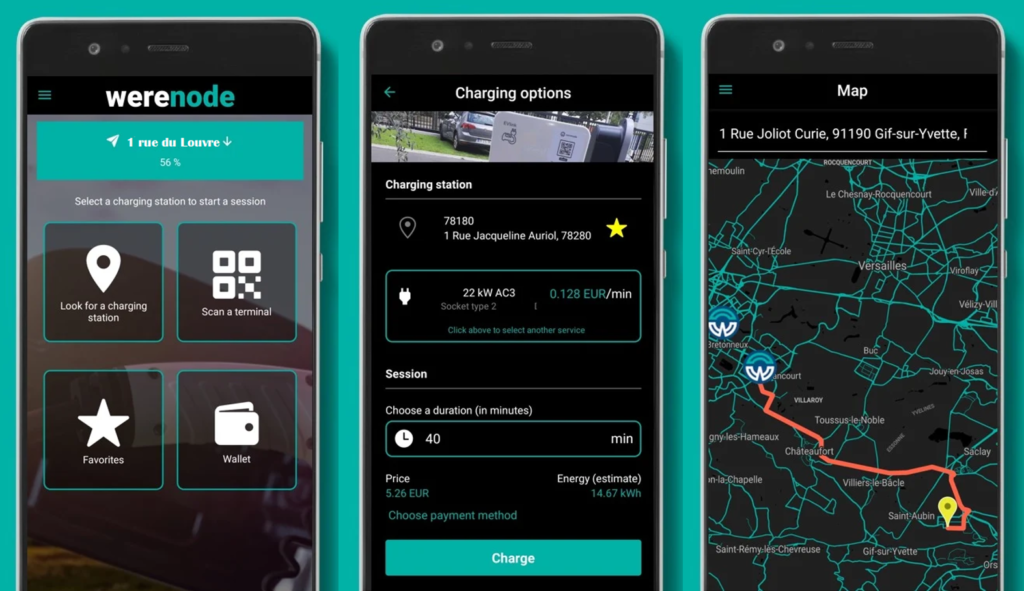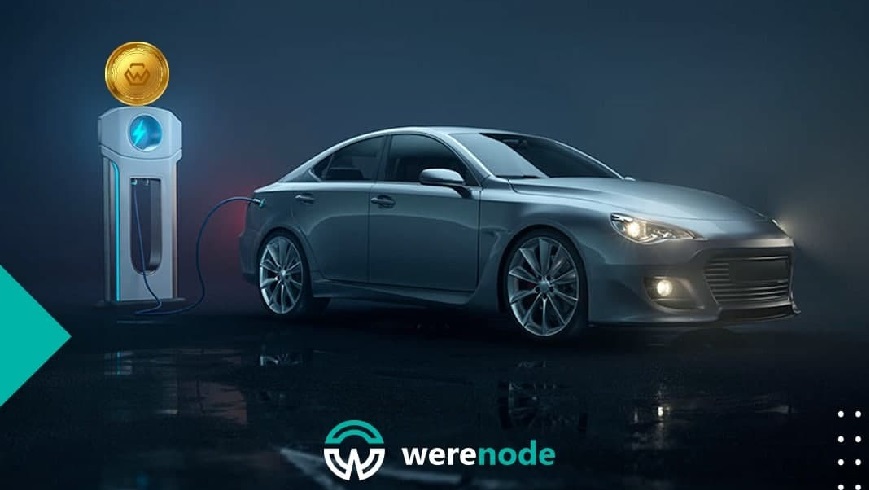In a dialogue with Mobility Portal Europe, Benoît Maïsseu, CEO of Werenode, comments on the company’s flagship product.

It is a software solution that provides charging services to electric vehicles (EV), which, using expertise in blockchain technologies, can incorporate the features of various associated modern services.
“Our technology is designed to be international, allowing us to have a customer base in any country”, Maïsseu indicates.
This means that the program can be used on any compatible station, as it complies with the OCPP standard.
However, although the firm has generated interest in other countries, they are based in the French market because, to attract customers, they need to have a physical presence, especially for installing charging stations.
Swapping providers once the equipment has been installed becomes more complicated, as it necessitates changing the entire infrastructure.
Therefore, establishing a close partnership with local charging providers enables them to operate services more effectively.
Additionally, the CEO comments: “In our own experience, we are one of the few companies trying to have a real-life project with blockchain, which is not so common.”
It is worth noting that this system is a vast database that collects and stores information in a shared and decentralized manner.

This creates a unique record, but at the same time, generates synchronized copies, making data manipulation impossible.
That aspect is pivotal nowadays, as cybersecurity is a major concern for both users and charging providers.
Related to the aforementioned, the characteristic of the startup is that it offers various payment options for users, including Fiat and Crypto, methods of cryptocurrency that allow for secure, traceable, and scalable transactions.
Additionally, on its platform, it allows owners to register their hubs and open their devices to the public, facilitating seamless sharing and compensation.
The challenges facing Werenode in France
Despite being an advantage, being one of the few corporations implementing blockchain in real-life projects also indicates a general lack of understanding of this technology.
In other words, the perception of the digital world and such software is limited in industrial sectors.
Furthermore, the discrepancy between both sectors makes it difficult to obtain funding, as they do not fit entirely into either domain.
Another obstacle is regulatory stability.
The regulation surrounding the technology used by Werenode and cryptocurrencies tends to be complex and constantly evolving.
Increased government regulations and policies can create uncertainty and additional costs for small businesses, which face greater barriers and restrictions compared to large corporations.
In France specifically, the regulatory process can be “tedious and limiting” for emerging businesses.
Regarding the latter point, the company focuses on “resilience” and meeting all the required criteria and documentation.
Maïsseu acknowledges that this entails a time and resource investment but is fundamental for maintaining operations and regulatory compliance.
In terms of financing, the company strives to seek alternative funding sources and strategic collaborations to drive its initiatives forward.
The executive also recognizes the importance of decentralization in the economy and innovation.
Will France meet the AFIR objectives?
Recently, the new goals imposed by the Alternative Fuels Infrastructure Regulation (AFIR) came into effect for the European Union member states.
On the matter, Maïsseu asserts: “I am quite confident the objectives can be met.”
Indeed, according to the latest report from the European Automobile Manufacturers’ Association (ACEA), the French Republic ranks among the top nations on the continent with the highest number of installed charging points, reaching a total of 119,255 units.
Therefore, the Werenode representative advocates for EV adoption.
“I believe EV sales are a major challenge ahead of just the charging area. People are more concerned about the cost of cars as well as the price of electricity,” he indicates.
Hence, he does not rule out a future massive incorporation of hydrogen into the industry.
Concerns surrounding V2G
Regarding the role of Vehicle-to-Grid (V2G) charging, the consensus indicates that although some vehicles with this capability have been launched on the market, complete data on their adoption and real-world usage is not yet available due to its evolving nature.
Nevertheless, from a user perspective, V2G could be useful for the home, as it allows electric cars not only to draw energy from the grid but also to return it when needed.
That is, the car acts as a mobile energy source, capable of storing it during times of low demand and discharging it during high-demand periods.
Nevertheless, its impact on the power grid is still not entirely clear and needs to be tested on a large scale.
Furthermore, Benoît Maïsseu raises concerns about grid stability and the need for energy compensation when large numbers of vehicles are connected to the grid simultaneously.
It is worth mentioning that the corporation has announced on LinkedIn: “Werenode has also incorporated and integrated this feature into our product concept, and soon EV users will be able to sell their excess energy to others through our marketplace.”








